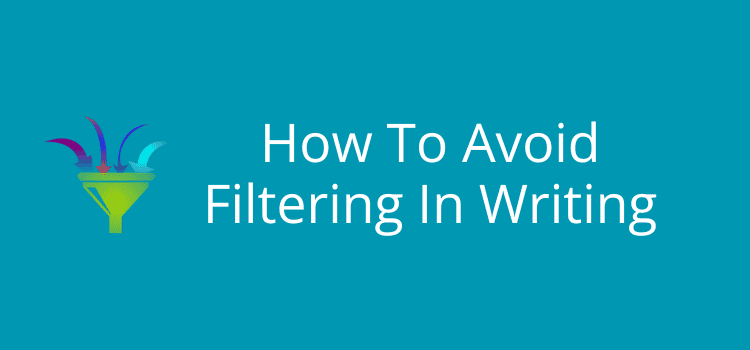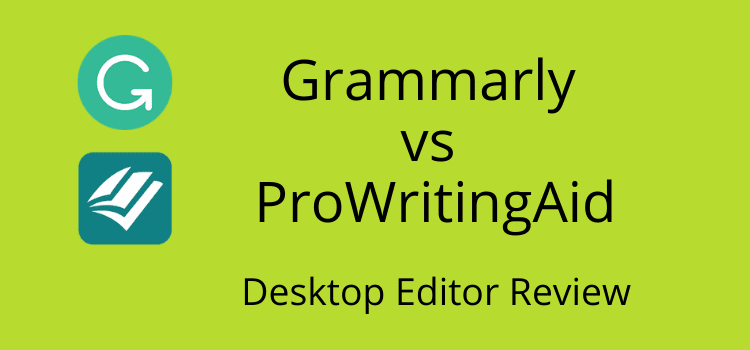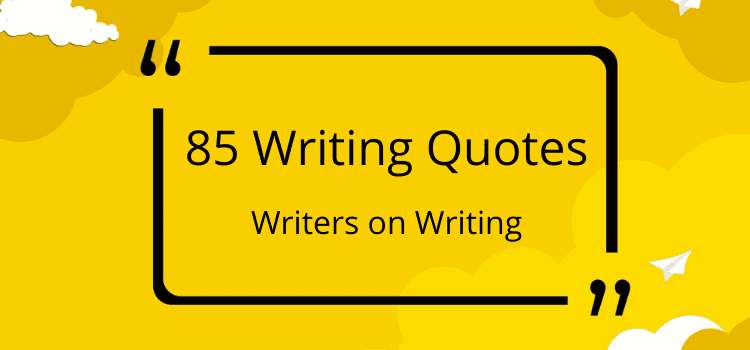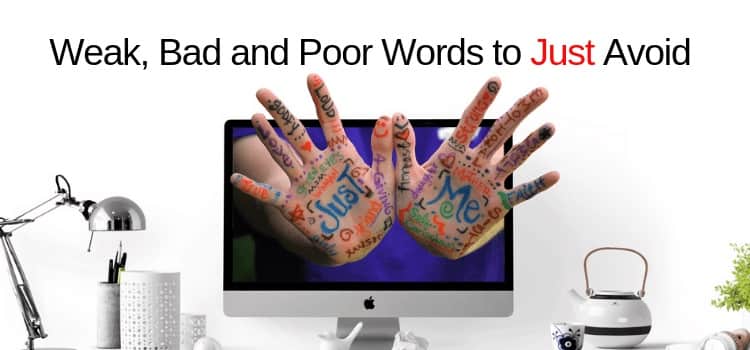
To be honest, the terms filtering in writing and filter verbs were new to me. I came across the terms in a few Reddit posts, which made me curious.
When I understood the concept, the best I could relate it to was the idea of show, don’t tell, and narrative distance.
But as a contemporary writing term, it is quite fitting, because it aptly captures the idea of showing something directly rather than reporting a character’s experience.
As far as I can ascertain, the term was first coined by Janet Burroway in her 1982 book, Writing Fiction.
What exactly is filtering in writing?
It happens when you describe a character’s experience, rather than letting the reader experience it directly.
You could say that it adds a subtle distance between the character and the reader.
Instead of writing what the character actually sees, hears, smells, or feels, it’s sometimes easier, or by habit, to report what the character is seeing, hearing, or feeling.
It’s a bit like an extra step that, in many cases, isn’t necessary.
Common verbs that can act like filters include: saw, heard, felt, noticed, realized, thought, knew, watched, and looked.
Verbs like these centre the attention on the perception instead of what’s happening.
For example:
Filtered: She felt the icy rain hit her face.
Unfiltered: Icy rain stung her cheeks.
In the second example, with no filter, the moment feels more immediate and sensory because it directly describes the action on the character.
Why filtering can weaken your writing
Filtering might not seem like a big deal, but it can have an impact.
When you use a filter verb, you’re telling the reader what the character is experiencing instead of showing them what is happening.
Let’s say you write something like this.
“She saw a long, dark shadow move eerily across the top of the stairs.”
Yes, the sentence tells us the character witnessed something spooky.
But if you remove the filter, it becomes much more intense.
“A long, dark shadow slid eerily across the top of the stairs.”
Now the reader is right there in the moment, seeing it happen.
You can see why I believe this term is part of “show, don’t tell”, but I have to admit that it is far more specific.
For new writers, especially, this is a great term to keep in mind because it is a simple way to avoid unnecessary telling.
Another problem it can overcome is repetition in writing.
Filtering verbs tend to follow similar patterns because there are so few verbs.
You can only use verbs like noticed, realized, or watched so many times before they become overused.
That’s why removing filters can give your writing more power, immediacy, and punch.
Before and after examples
To give you a few more ideas about avoiding filtering, here are some examples to help you.
She heard footsteps behind her and quickened her pace, her heart thudding in her chest. (Filtered)
Footsteps echoed behind her. She quickened her pace, her heart thudding against her ribs. (Unfiltered)
They watched the fireworks burst in the sky, marveling at the colors. (Filtered)
Fireworks burst above the trees in red, gold, and violet, lighting their faces as they stood in quiet awe. (Unfiltered)
She realized she had forgotten his birthday and cursed under her breath. (Filtered)
His birthday. She’d completely forgotten. Her stomach dropped, and a quiet curse slipped past her lips. (Unfiltered)
It’s pretty easy to see why removing filter phrases can be so effective. It’s more direct and keeps events and actions in front of a reader.
When filtering is a good option
Filtering isn’t always bad, because it’s necessary or useful in many situations.
You might want a reader to feel some distance from the character, like when the character is confused, dazed, or lacking confidence.
For example, writing “He realized it was a hopeless situation” shows defeat without describing a sensation or reaction.
It also works well when you want to move the story along a bit.
Instead of describing every detail, you can say, “She knew they were in trouble,” and move on.
Another situation to use filtering is when you want to remind readers whose point of view they are following, especially if the story is quickly switching between characters.
For example, “He noticed the clock ticking loudly” makes it clear it’s his experience, and not that of others.
In short, using filtering carefully and with purpose is fine, because it can help your story at the right moments.
Quick editing checklist
If this is all new for you, here are some tips on how to check for filtering when editing.
1. Scan for common filter verbs: Watch out for words like saw, heard, felt, noticed, realized, thought, knew, watched, and looked.
2. Cut phrases that distance the reader: Phrases like “She felt that…” or “He saw that…” usually add an unnecessary layer.
3. Use character thoughts sparingly: Only keep “she thought” or “he realized” if it adds clarity or is necessary for pacing.
4. Watch for repetition: Avoid using the same filter verbs repeatedly in close succession.
5. Focus on vivid descriptions: Describe what the character experiences with active, specific verbs and sensory details.
6. Check emotional moments: Make sure feelings come through action and sensation, not just filtered through thoughts.
7. Balance is key: Not every filter word needs to go, so use them intentionally when they serve the story.
Summary
As with any writing point, there’s no right or wrong choice with filtering.
It’s purely an awareness issue. If it’s new for you, you’ll probably notice it now.
It will give you a new tool that is so easy to use to strengthen your writing.
You don’t need to go overboard, though. However, I’m sure you will find minor improvements you can make.
If you are writing a novel, keep it in mind when it comes time for your second draft.
Like I said at the beginning, it is a term that is closely related to “show, don’t tell.” So anything you can do to show more is a good thing.
Related Reading: How To Use The Causative In Creative Writing
Share This Article


